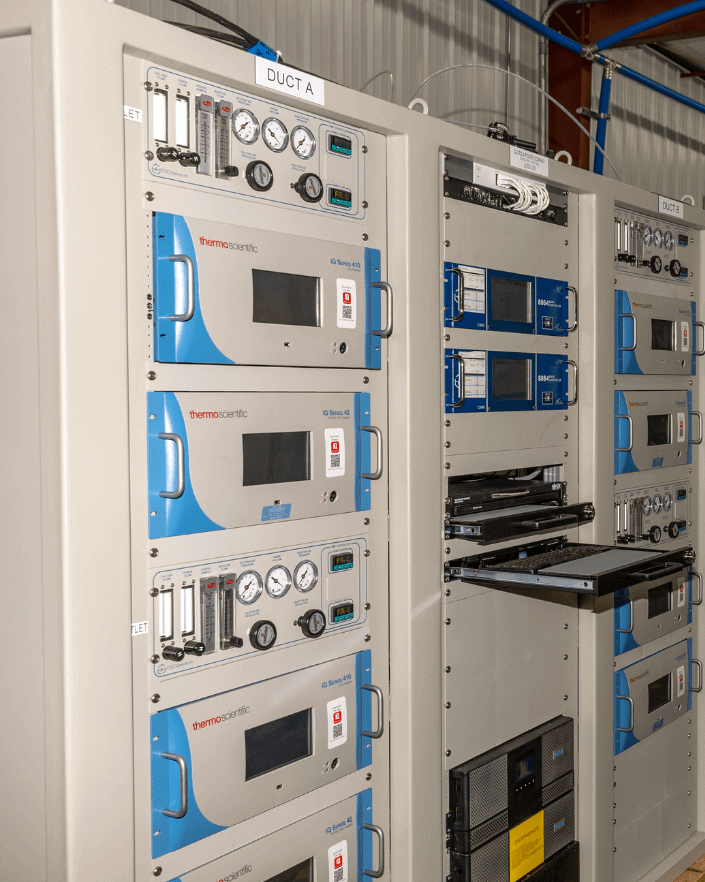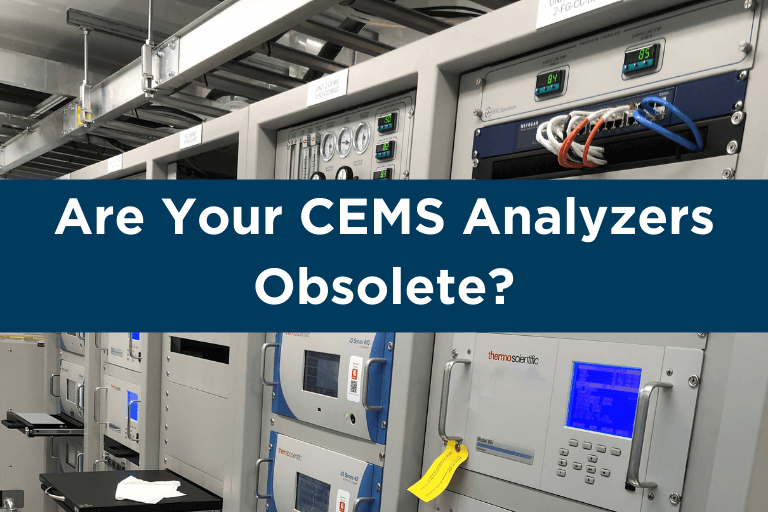CEMS Analyzers play a vital role in regulatory compliance for your facilities. With constant technological advancements and evolving regulatory requirements, older CEMS analyzers can become obsolete, posing risks to both compliance and operational efficiency. The following information serves as a walkthrough of how to identify if your CEMS analyzers are obsolete, why you should upgrade yours, and how ESC Spectrum can help.
How You Can Check if Your Analyzer is Obsolete
The first step to checking if your CEMS Analyzer is obsolete is identifying the supplier company and checking their website for a list of products that are no longer supported. ESC Spectrum works with a variety of analyzer suppliers and is always working to inform customers when products become obsolete. The following are some common analyzers from our suppliers that no longer receive full support or maintenance services from suppliers.
Consumables, Spare Part, and Service Availability for the following Thermo Fisher i-Series instruments will no longer be provided beginning after December 31, 2025:
- 42i
- 42iLS
- 43i
- 48i
- 49i
- 49iPS
- 410i
- 146i
- 111
The following i-Series products are still current:
- 80i Hg
- 51iHT/LT THC
The following Teledyne analyzers are no longer available for sale and support services are limited to best effort with limited parts availability:
- SM8160, SO2/NO analyzer
- SM8175, SO2/NO analyzer
- SM8200, SO2/NO analyzer
Production for the following CAI 600 Series analyzers has been discontinued, however factory support for this generation (2012) continues for several more years.
- 600 Series HFID Analyzer
- 600 Series CLD Analyzer
- 600 Series NDIR analyzer
Why You Should Upgrade Your Analyzer Sooner Rather Than Later

If your analyzer is obsolete, you are risking your CEMS not having the capability to measure emissions properly to comply with regulations. This can be caused by inaccurate data, limited monitoring capabilities, maintenance challenges, or data that is incompatible with modern DAS technology and reporting requirements. With an outdated analyzer, these issues are more difficult to mitigate due to discontinued support and maintenance.
Here are a few benefits of upgrading to a newer version:
- Compliance Assurance: Investing in a more up-to-date analyzer can provide you with more accurate emissions requirements, increasing ease of meeting regulatory requirements.
- Enhanced Monitoring Capabilities: Updated analyzers come with more advanced features such as real-time monitoring, improved sensitivity, or a wider range of measurable pollutants.
- Operational Efficiency: Modern analyzers also require less maintenance, which can reduce downtime and added costs for your facilities.
- Up-To-Date Digital Solutions: The newer your analyzer, the more compatible it may be with current data acquisition and reporting software.
Additional Steps to Maintain Your Analyzers
Even if your analyzer is still being supported, it is important to ensure that it receives regular maintenance to avoid issues with downtime and reliability. Read our blog post “CEMS Analyzers: What They Are and How to Maintain Them” to learn more. Our youtube channel is also a great source to learn about CEMS analyzer maintenance. Watch our CEMS Equipment Maintenance How-to Series for walkthroughs on performing maintenance on a number of different CEMS analyzers.
For more information on different types of analyzers, read our CEMS 101 Series blog posts on NOx, SO2, CO, and Oxygen and Flow Analyzers.
ESC Spectrum is always working to provide custom analyzer solutions for our customers. If you have any interest in analyzer maintenance, repairs, or upgrades, request a quote today.
Interested in learning a more comprehensive overview of how CEM Systems work? Read Understanding Continuous Emissions Monitoring Systems (CEMS): A Comprehensive Guide. This guide will give you a complete understanding of all the components in the flow of a CEMS.

Daniel Napolitan
Daniel joined ESC Spectrum in August of 2023 as a Marketing Specialist I. He started this position shortly after graduating from the University of Missouri with a degree in Journalism and Strategic Communications. Prior to working with ESC Spectrum, Daniel gained experience in the digital marketing field doing SEO and keyword research to produce successful organic content. He is now responsible for completing various marketing tasks such as blog writing, social media posts, paid search advertisements, web analytics, and more.


